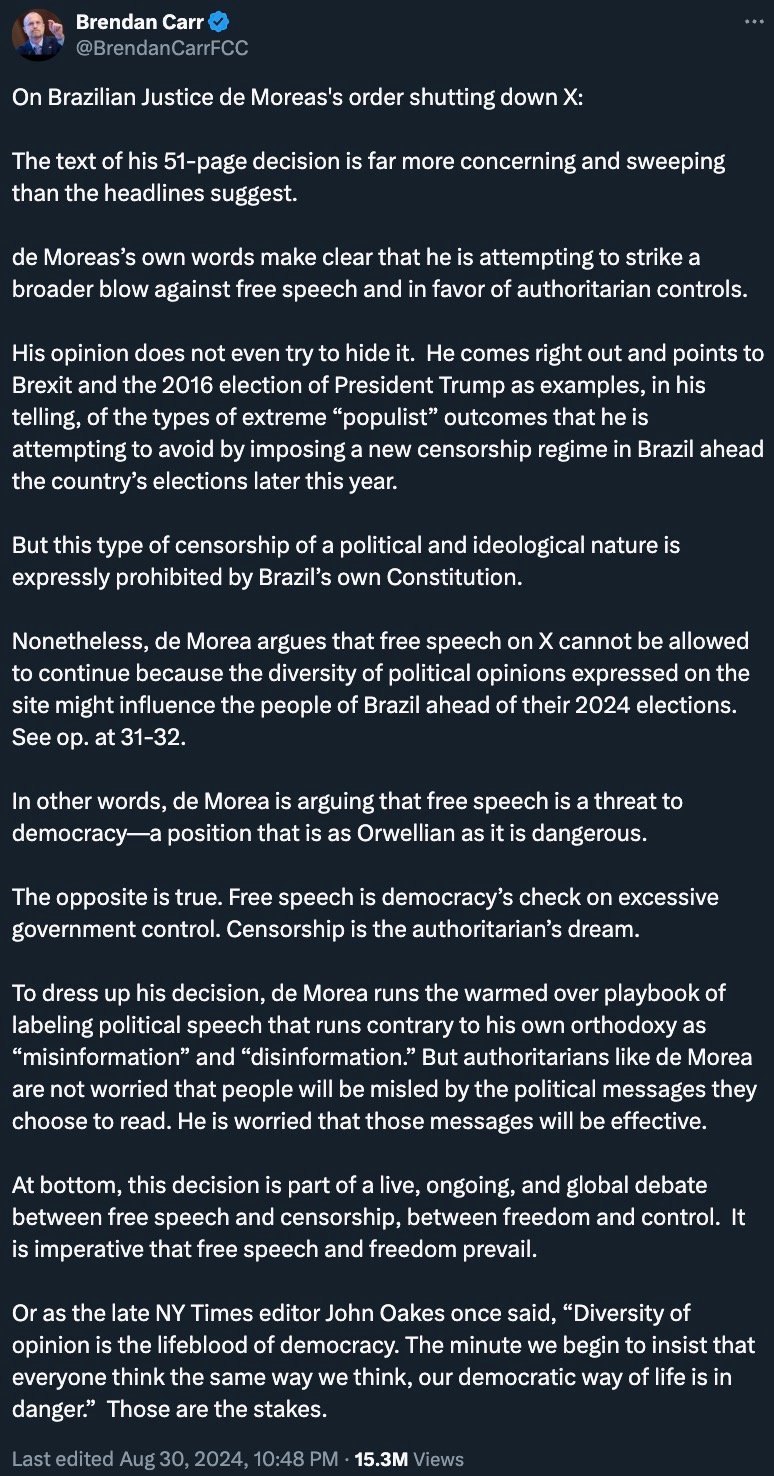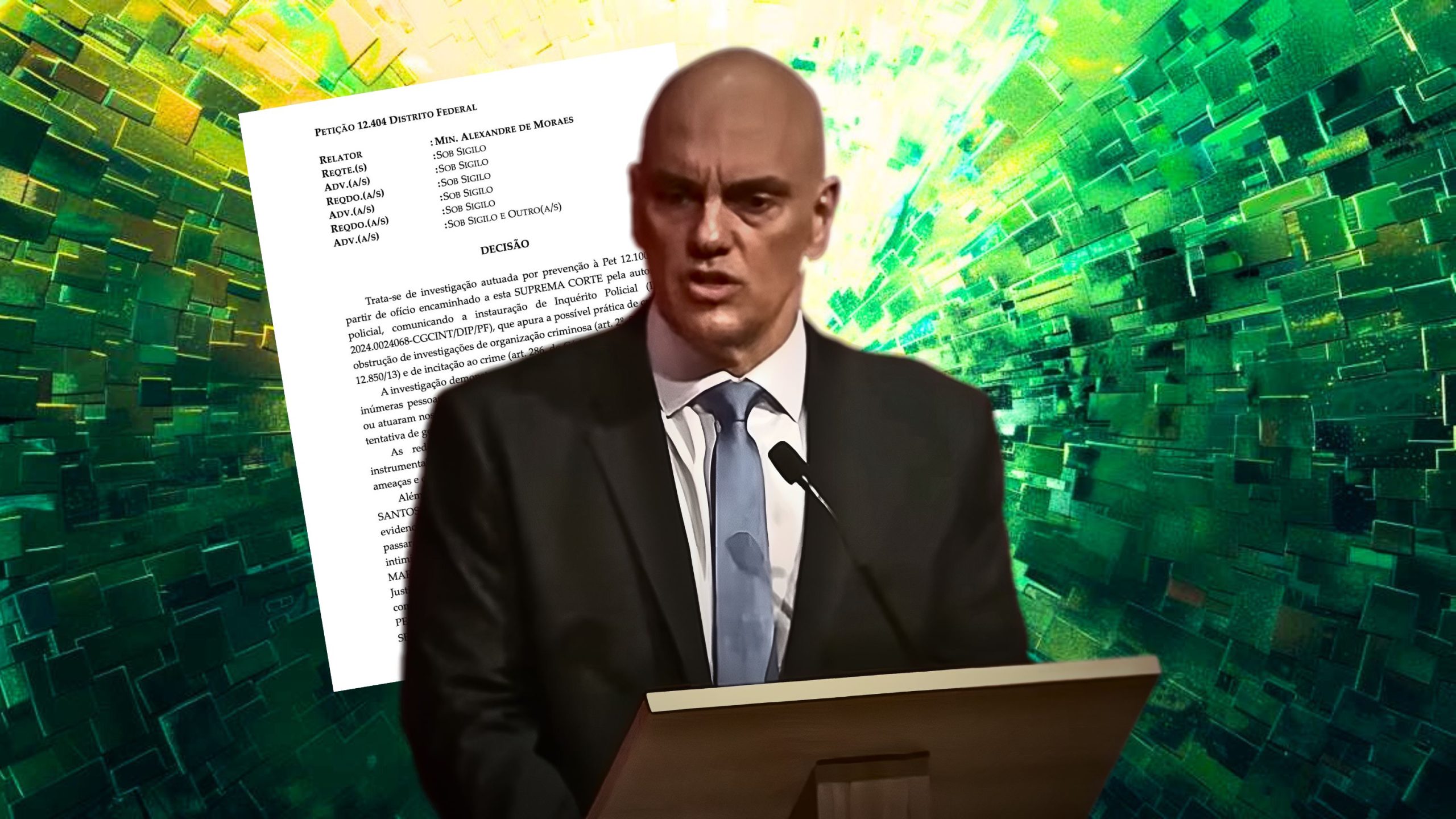Yesterday’s order by Brazilian Justice Alexandre de Moraes to halt the operations of the social media platform X has ignited international debate over free speech and governmental overreach. The order, which spans over 50 pages, cites concerns over the platform’s role in spreading what it deems anti-democratic speech and “misinformation” ahead of Brazil’s 2024 elections. US Federal Communications Commission (FCC) Commissioner Brendan Carr has voiced significant concerns over this move, describing it as a “broader blow against free speech.”
We obtained a copy of the order for you here: Original, English.
In his detailed ruling, Moraes explicitly references global political events such as Brexit and the 2016 election of President Donald Trump, describing them as “types of extreme ‘populist’ outcomes” that his decision aims to prevent. This linkage is critical to understanding the sweeping nature of the order, as Carr points out, “His opinion does not even try to hide it. He comes right out and points to Brexit and the 2016 election of President Trump as examples, in his telling, of the types of extreme ‘populist’ outcomes that he is attempting to avoid.”

Carr argues that such explicit connections to international political events signify an attempt to control political discourse in Brazil, a stance he describes as “Orwellian” and “dangerous.” The Commissioner stressed, “The opposite is true. Free speech is democracy’s check on excessive government control. Censorship is the authoritarian’s dream.”
Moraes defends the shutdown by labeling the free speech on X as “harmful” and “manipulative,” which could potentially influence the upcoming elections. He stated in the order, “diversity of political opinions expressed on the site might influence the people of Brazil ahead of their 2024 elections.” This assertion is part of what Carr criticizes as a “warmed over playbook of labeling political speech that runs contrary to his own orthodoxy as ‘misinformation’ and ‘disinformation.’”
The decision has been controversial within Brazil as well, with several legal experts pointing out that it potentially conflicts with the Brazilian Constitution, which expressly prohibits censorship of a political or ideological nature. Yet, de Moraes contends that the urgent nature of the situation requires stringent measures, as highlighted in his decision: “[The platform] has been used to coordinate actions against Brazilian democratic institutions.”
Carr concludes with a rallying cry for the preservation of free speech, invoking the words of late NY Times editor John Oakes: “Diversity of opinion is the lifeblood of democracy. The minute we begin to insist that everyone think the same way we think, our democratic way of life is in danger.” These words, according to Carr, underscore the stakes involved in this debate between freedom and control, a debate that is not just Brazilian but global.
The escalation in Brazil marks a troubling development in the global discourse on free speech. By invoking threats to democracy to justify severe censorship, Justice de Moraes’s actions set a dangerous precedent. Such moves not only challenge the foundational principles of freedom of expression but also signal a potential erosion of democratic norms under the guise of protection. This stark imposition of control raises alarms not just in Brazil, but around the world, as it underscores the vulnerability of digital rights and freedoms to the whims of governmental power.










